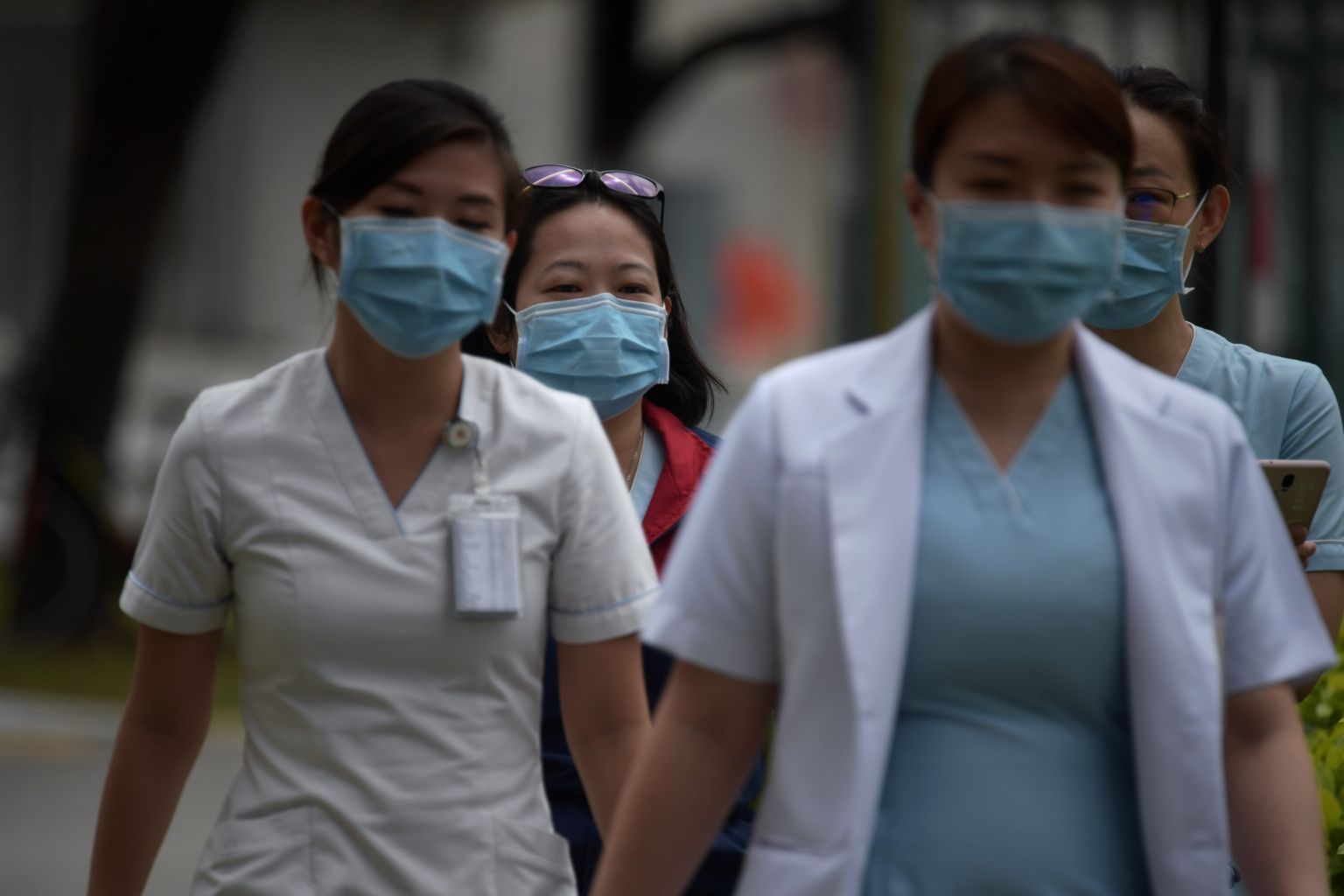Coronavirus: Singapore's response to outbreak praised by experts and observers
Sign up now: Get ST's newsletters delivered to your inbox

A new study at Harvard University found that Singapore's approach to the coronavirus outbreak is the "gold standard" for case detection.
ST PHOTO: KUA CHEE SIONG
Follow topic:
SINGAPORE - Singapore's efforts in tackling cases of coronavirus and its approach in communicating to the public have won plaudits from experts and observers from around the world.
World Health Organisation (WHO) chief Tedros Adhanom Ghebreyesus said he had spoken on Monday (Feb 17) to Singapore Health Minister Gan Kim Yong.
"We are very impressed with the efforts they are making to find every case, follow up with contacts and stop transmission," said Dr Tedros.
"Singapore is leaving no stone unturned, testing every case of influenza-like illness and pneumonia, and so far they have not found evidence of community transmission."
Singapore first detected a case of coronovirus on Jan 23 and two weeks later, the Government raised its risk assessment of the outbreak from yellow to orange.
As of Tuesday, the Republic had 81 confirmed coronavirus cases, while a total of 29 patients have been discharged.
Mr Gan, however, had said earlier this month that although Singapore has registered "limited transmission" of the virus, it does not constitute widespread community transmission.
Singapore-based Australian journalist Stephen Dziedzic, in his analysis on Singapore's neighbours' responses to the outbreak, contrasted the Republic's "immense and sophisticated campaign" to contain the coronavirus against some other South-east Asian nations that have struggled to handle the threat.
"When the epidemic first hit, the vast machine of Singapore's public service roared smoothly into life, and it's still running at full throttle," he wrote in The Strategist, the commentary and analysis site of think-tank Australian Strategic Policy Institute, while listing down the various efforts put in place by the Republic to limit the spread of the virus.
"Even if the bout of panic buying suggests the city-state is slightly more brittle than portrayed in national mythologies, this crisis has still been a powerful reminder of Singapore's formidable capacities."
Singapore leaders, led by Prime Minister Lee Hsien Loong, have taken the lead to allay concerns over the spread of the epidemic.
PM Lee posted a video in three languages on his Facebook page on Feb 8 urging Singaporeans to stay united and resolute, adding that the nation is much better prepared to deal with the situation than it was 17 years ago with the severe acute respiratory syndrome (Sars).
He also said the Government would change its approach if the virus became widespread to avoid overwhelming hospitals, adding that he would keep the public "informed every step of the way".
PM Lee's speech "was a pretty outstanding example of very good risk communication", said Dr Claire Hooker, a senior lecturer at the University of Sydney's Centre for Values, Ethics and the Law in Medicine, who has studied the public responses to epidemics and infectious disease for about 20 years.
"It gave people very concrete actions" that "handed back a measure of control to people whose sense of control will feel threatened", she said.
Mr Thomas Abraham, author of Twenty First Century Plague, The Story Of Sars, and a risk communication consultant for WHO, said the speech worked because of the high level of trust Singaporeans have in the competence of the government - as well as the transparency.
"Prime Minister Lee does not hide any facts," Mr Abraham said. "Nor does he hesitate to talk about how the situation might worsen."
PM Lee's speech also won praises from the Philippines' largest entertainment and media conglomerate, ABS-CBN, which praised the 68-year-old for portraying "a picture of eloquent, soothing calm".
"He didn't only urge his citizens to do their part, but acknowledged those already doing theirs," it said.
Meanwhile, a new study at Harvard University found that Singapore's approach to the coronavirus outbreak is the "gold standard" for case detection, with researchers using the city-state as a benchmark for other countries.
The study concluded that the global number of cases of Covid-19, as the disease has been called, would be 2.8 times more than it is currently if every other country had the same detection capacity as Singapore.
"We consider the detection of 18 cases by Feb 4, 2020, in Singapore to be a gold standard of near-perfect detection," wrote four epidemiologists at Harvard's T. H. Chan School of Public Health.
The study further added: "Among countries with substantial travel volume, Singapore showed the highest ratio of detected imported cases to daily travel volume, a ratio of one case per five daily travellers.
"Singapore is historically known for exceptionally sensitive detection of cases, for example in Sars, and has had extremely detailed case reporting during the Covid-19 outbreak."

